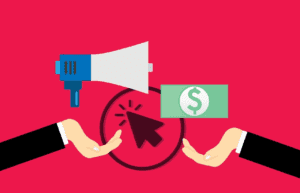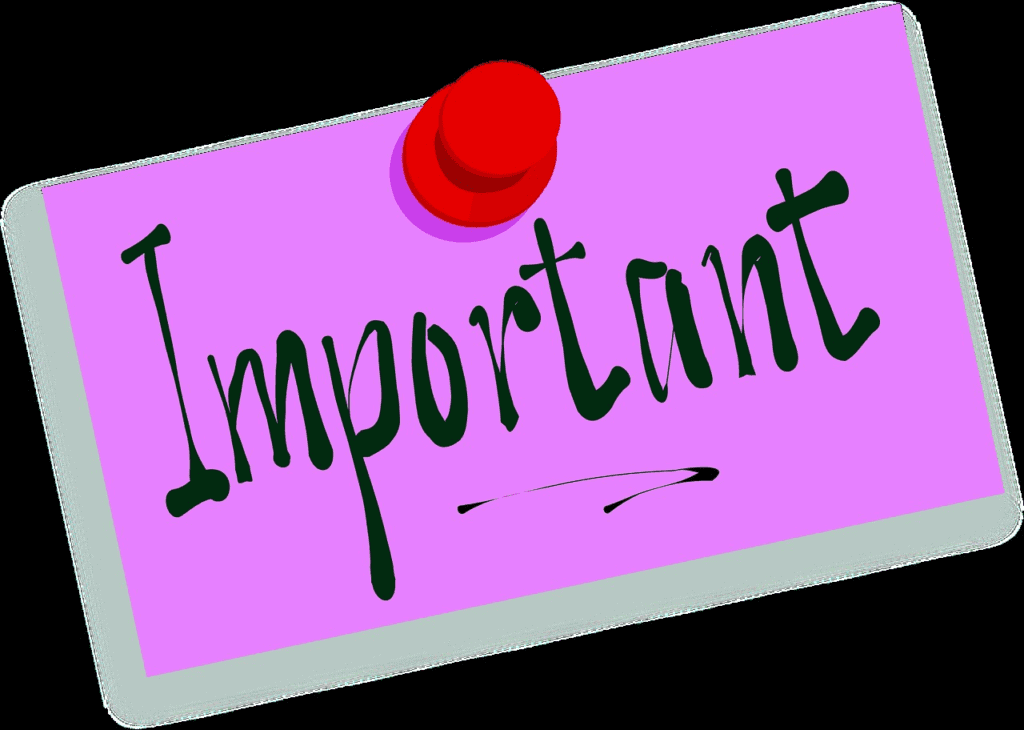
Successful monetization of a niche website is a delicate dance between revenue generation and maintaining a positive user experience. An excess of ads or promotional content will turn readers away. Having a dedicated audience that is likely to support your chosen revenue streams should be the the primary goal of your website.
- Welcome to Part 3 of a series on the Beginners Affiliate Marketing Guide.
- Turning Passion into Profit.
- Finding Your Niche: Identifying Profitable Website Ideas.
- Can you Monetize Free WordPress Websites?
- How to Monetize a WordPress Blog.
- How Hard is it to Build Content.
- Content that Converts: Crafting Compelling and Valuable Niche Content
- How to Add Affiliate Links to your Content.
- What to Look for in an Affiliate Program.
- Affiliate Commissions
- Other Common Methods of Monetizing your Site.
- FAQs
- Conclusion:
Welcome to Part 3 of a series on the Beginners Affiliate Marketing Guide.
Turning Passion into Profit.
Parts one and two can be seen here and here.
Finding Your Niche: Identifying Profitable Website Ideas.
In Part 2 (The 9 Strategic Affiliate Secrets for Niche Selection), I covered the reasons and ways new affiliates could go about selecting a niche.
You may be thinking to yourself, “This guy is crazy” talking about monetization before putting out content and building an audience.
The reason is simple. It is all in the planning.
Deciding on which products you would like to promote will guide you to the keywords for your content.
So before you even start writing you need all your ducks lined up.
Once you have done that, then you can begin building some authority into your website.
As I mentioned in this post, build out your blog with at least 30-40 helpful articles in your niche before adding affiliate links.

Can you Monetize Free WordPress Websites?
It is surprising how often this is asked. Here is the answer.
YES, and… No…
The free WordPress plan does not allow you to monetize your blog via Adsense and, but affiliate links (texts with a hyperlink) will work.
If you’re just getting started it’s not a bad way to understand the basics of WordPress, because you can still make posts and (if you have been lucky enough to have been approved), use hyperlinks with your affiliate links in place.
Affiliate management companies like to review websites before accepting them into their program, and there is no need for me to tell you what they are looking for.
But it is restrictive, and has way fewer options when it comes to creating your own custom design.
Plus, the search engines tend to not take free sites seriously, hence Adsense and other ad companies not being available for them.
If you eventually want to monetize (using Google Ads) and you’re seriously perusing affiliate marketing, register a good domain name and get at least the free version of a top theme from the get-go.
You will have more control of your site, which will allow you to personalize your site with more custom options, then when it comes time to monetize you make it easy for affiliate companies to approve your site. (if that is your desire).
How to Monetize a WordPress Blog.
You need to have enough content published on your blog that Google is starting to see you as an authority.
Possibly, do about 30 or 40 articles before you think about adding affiliate links.
Rather than trying to sell something right off the bat, you want to be seen as knowledgeable, and trust worthy and providing useful information will do that for you..
This will lead to better ranking in the Google Serps.
Your audience should increase without having to do any paid promotion, by using your keywords to grow your traffic organically.
A lot of people think a keyword should be a link but they don’t need to be.
You use your Keywords for Search Engine Optimization. (SEO)
So, doing that you should be able to build to around 1000-1500 or more visitors to your site a month. ( it could be 10,000+!).

How Hard is it to Build Content.
If the above looks hard, take a look at my previous post where I mentioned Table Tennis.
Writers block should no longer be an issue.
What could you say in 30 or 40 articles without selling stuff, at the same time using some of the keywords you have chosen for your product selections to get you into Googles first pages?
Here are some possibilities.
| Player profiles | How to Join a Table Tennis Club | Materials used in Paddles and Balls |
| Teams | How to Start a Table Tennis Club. | Regulations for Table Tennis |
| Table Tennis History | Women Player Profiles | Origins of Table Tennis |
| Table Tennis Rankings | Women’s Competitions | Why Table Tennis is popular |
| Past Champions | Women Player Rankings | Table Tennis Techniques |
| Competition Results (Comments) | Player Fitness Regimes | How much do table tennis players earn? |

So, there is 18. off the top of my head, any of which can be broken down further.
Finding content topics is easier now than ever!
If we want to get technical and do it the easy way, you now have the tools to do it without doing it the old school way and researching, and researching and doing more research.
I will use the Wealthy Affiliate Niche Finder.
As you can see there is no shortage of topics you are able to craft content around.
A couple of them will be useful when adding affiliate links.

Just for this exercise I have clicked the search icon for Table Tennis Equipment reviews and got the breakdown of that below.

If I click on the search icon again I can break it down further.
Content that Converts: Crafting Compelling and Valuable Niche Content
Good content is the secret that will grow the monetization of your site.
Just working within niches like Table Tennis you should sign up to relevant news sites to keep you updated with the latest trends that are developing within that niche, giving you a near endless supply of topics to write about, and broaden the scope of your coverage as you add more content to your site
Platforms like Amazon Associates, Rakuten, Awin or any number of can help you find suitable affiliate programs.
Sporting manufacturers / sporting trainers often have their own affiliate programs.
They come with their own set of rules and payment structure (usually fairly straight forward), but they can be more than a little picky when selecting websites.
Forget about having a free website it won’t wash with those guys. An Example Here

How to Add Affiliate Links to your Content.
The 1st and most important rule.
Incorporate your affiliate link naturally so it flows with the sentence.
Other things to be aware of
- Neglecting disclosure and transparency. I have been forgetful, and missed out on being paid.
- Overloading content with affiliate links
That is about it.
What to Look for in an Affiliate Program.
Probably the most important thing is the “cookie life.”
Amazon only have 24 hours on theirs, E-bay is the same. That means if someone clicks on an Amazon product shown on your website, you only get paid if they buy it that day.
I look for a minimum of 30 days. Some companies offer “cookies“ for 12 months or longer.
Affiliate Commissions
Much is written about affiliate commissions
While 5% of a high ticket item may sound better than 30% of a low priced item, it really comes down to the quantity sold regardless of the price tag.
Of course there will be exceptional cases. But the decision is entirely yours as to what you go with.
One other thing, they will have a minimum payout rate. It may be $25, $50, $100 depending on the business.
So you may have have more than one sale to achieve a payout.
Other Common Methods of Monetizing your Site.
Here are some other common methods for monetization of a website.
- Display Advertising: One of the more common methods is using ad networks like Google AdSense or Media.net. These networks place ads on your blog, and you earn money based on clicks (CPC) or impressions (CPM). You need about 10,000 visits a month for these to be worthwhile. I find them annoying, but each to their own.
- Sponsored Posts: Collaborate with brands and businesses to write content that promotes their products or services. Make sure the content aligns with your blog’s niche and values.
- Sell Digital Products: If you have expertise in your niche, create and sell e-books, online courses, or downloadable resources. WordPress plugins like WooCommerce are ideal for setting up a product page or online store.
- Membership/Subscriptions: Offer premium content, exclusive resources, or an ad-free experience to subscribers who pay a monthly or yearly fee.
- Donations: If your content provides value, you can ask your audience for voluntary donations through platforms like Patreon or Ko-fi.
- Sponsored Reviews and Giveaways: Partner with companies to review their products or conduct giveaways. Charge a fee for these promotional activities.
- Freelance Services: If your blog showcases your expertise (e.g., writing, design, coding), use it as a platform to attract clients for freelance services.
- Sell Physical Products: If relevant, you can use your blog to sell physical products related to your niche.
- Consulting or Coaching: If you’re an authority in your field, offer consulting or coaching services. Your blog can serve as a portfolio to showcase your knowledge.
FAQs
Are niche websites profitable?
What is a Niche website owner?
What is the best niche to make money online?
Apart from that check out the top categories on Pinterest and look past the top 5 or 6, to find less “saturated” niches.
Conclusion:
Regardless of which website platform you are using, the important thing is to always prioritize providing value to your audience, regularly analyse your monetization methods/performance and adapt your strategies based on user feedback and changing market trends.
Thanks for reading.
[arrow_forms id=’27816′]
Want to Become a Pro Affiliate? Then check this out.









